TOPICS
TOPICS
2022.10.19

In November, the Graduate School of International Relations and the Career Center will hold an International Career Month!
2022.10.05
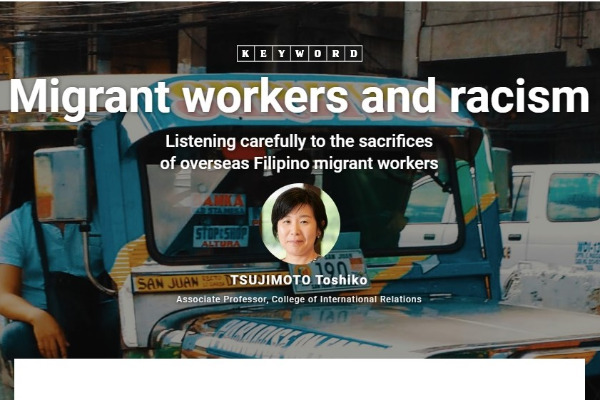
”Migrant workers and racism” - Listening carefully to the sacrifices of overseas Filipino migrant workers -(Prof.TSUJIMOTO Toshiko)
2022.10.05
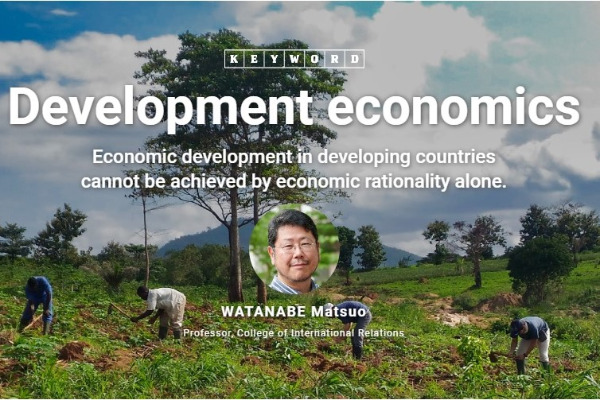
"Development economics" - Economic development in developing countries cannot be achieved by economic rationality alone -(Prof.WATANABE Matsuo)
2022.10.03
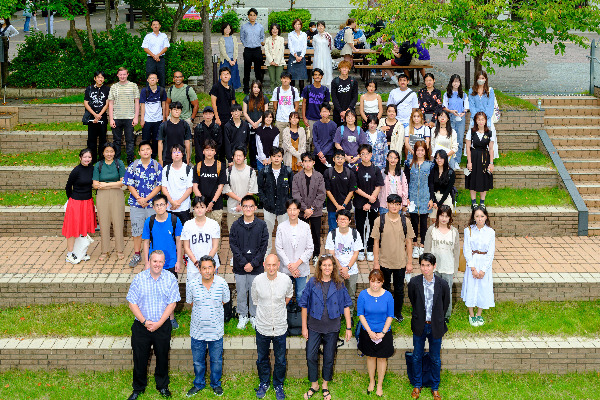
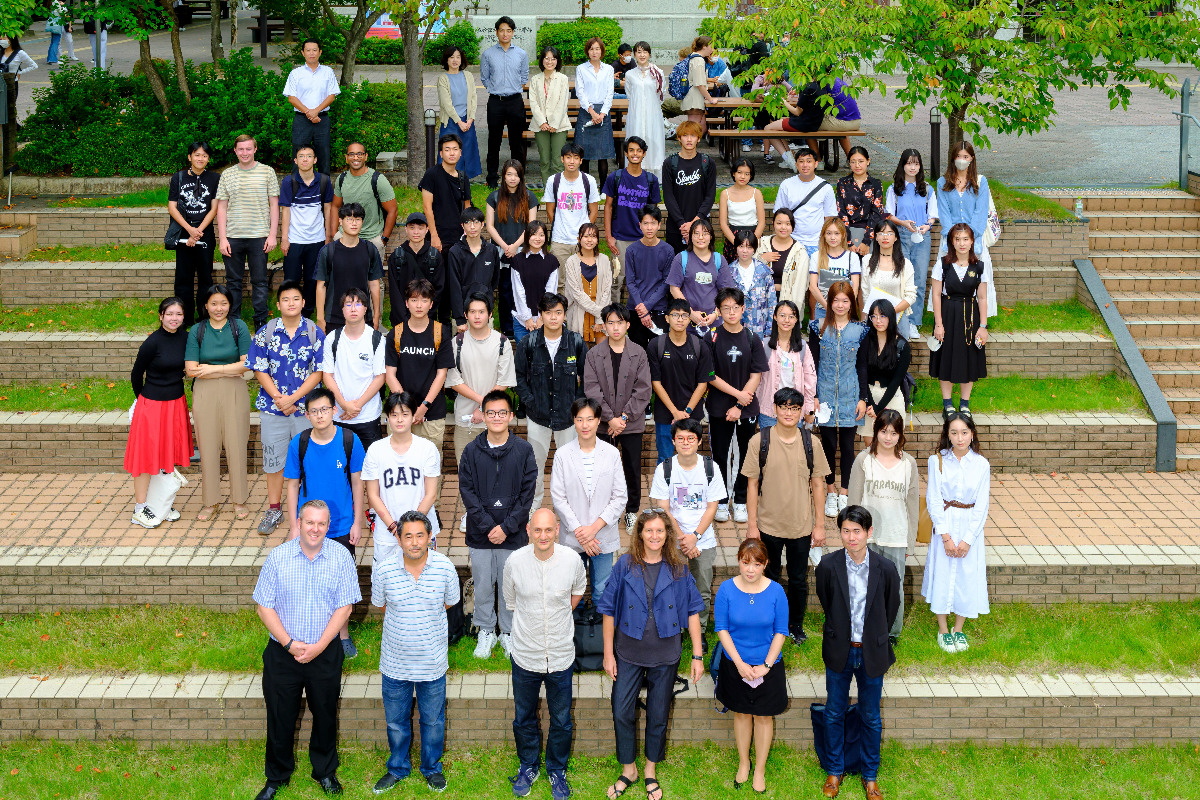
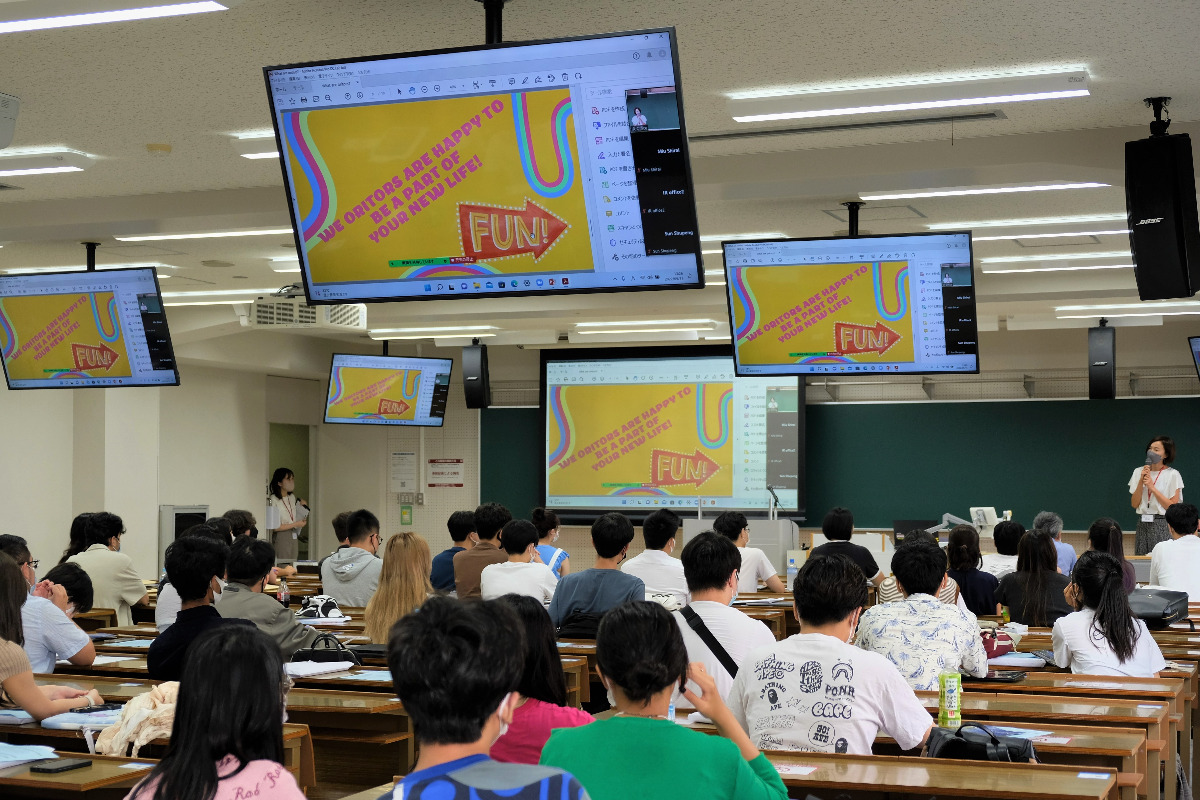
At the orientation, Dean Tomoaki Nishimura gave opening remarks to welcome new students. Following this, guidance sessions for university life, as well as course registration, were held.
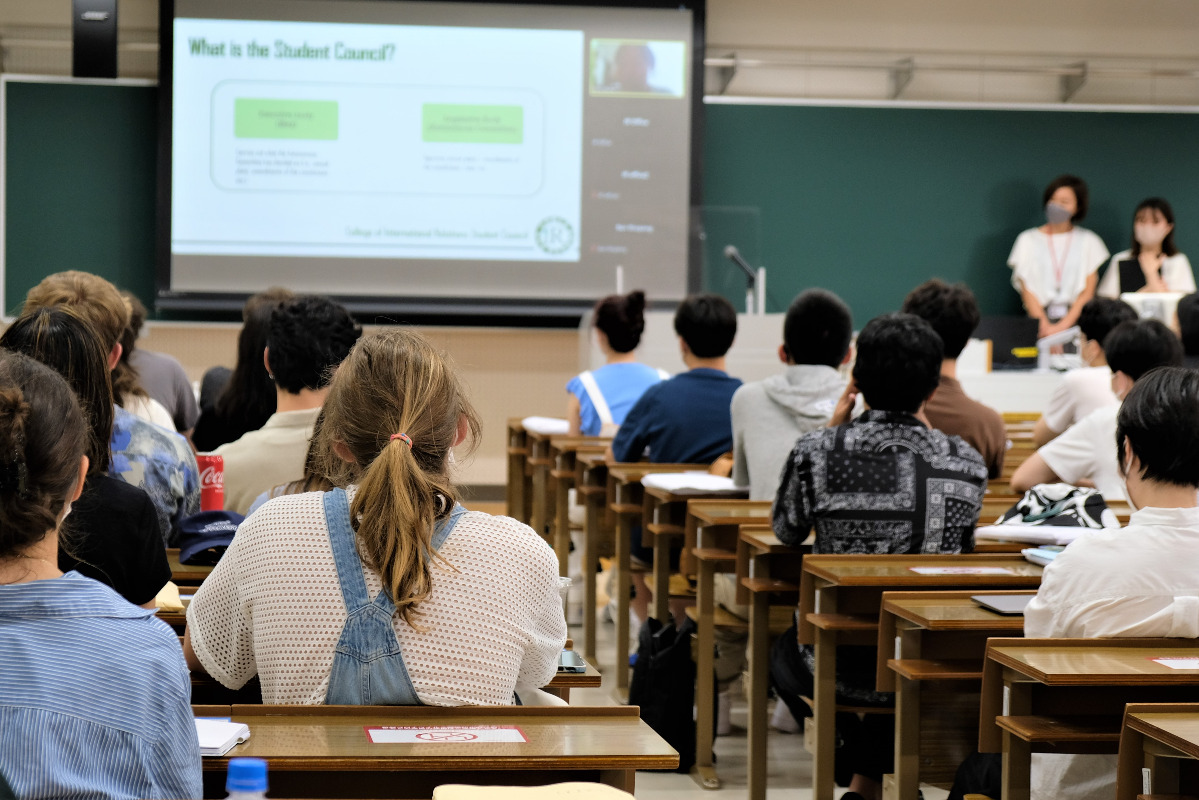
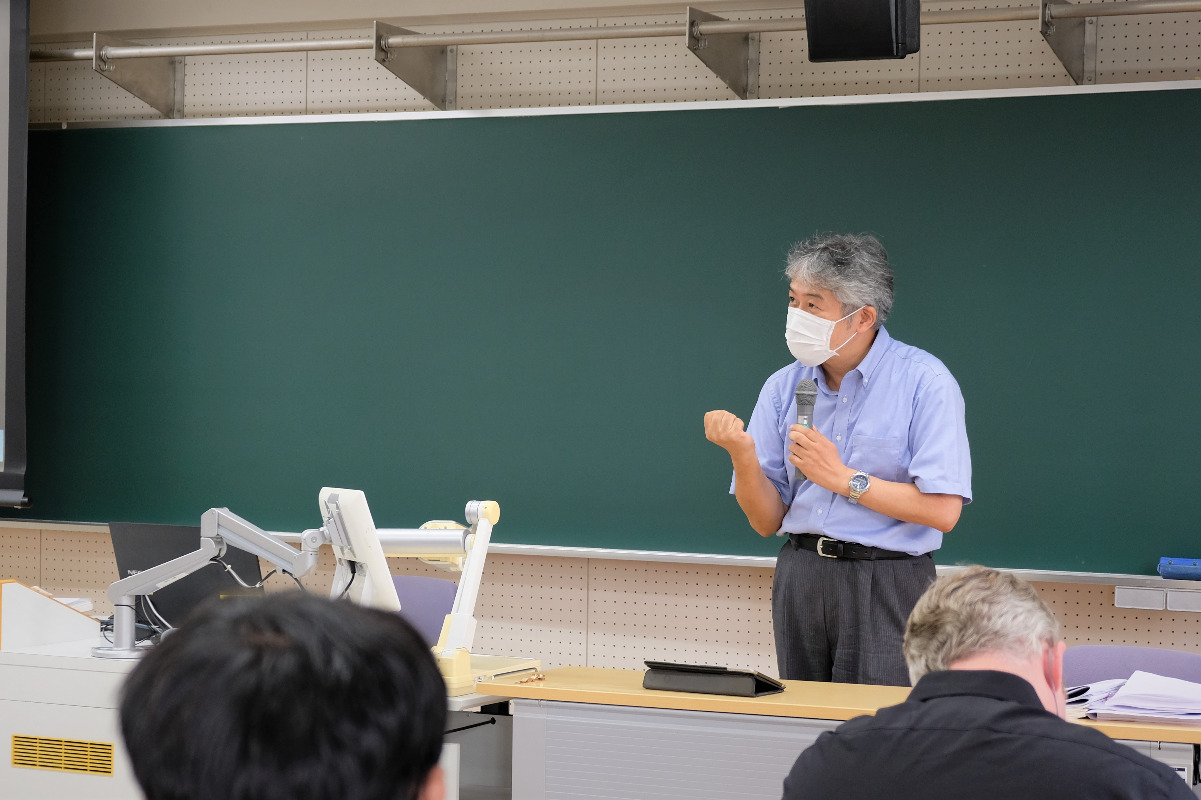
Almost all students including international students could attend the orientation in person this year. A welcomed change from the last academic year when many could not enter Japan from travel restrictions due to Covid-19.
On September 20th, students participated in the Course Registration Q&A sessions. Senior students from the student group (orientation coordinators) participated in the session, consulting new students about course planning and course registration.
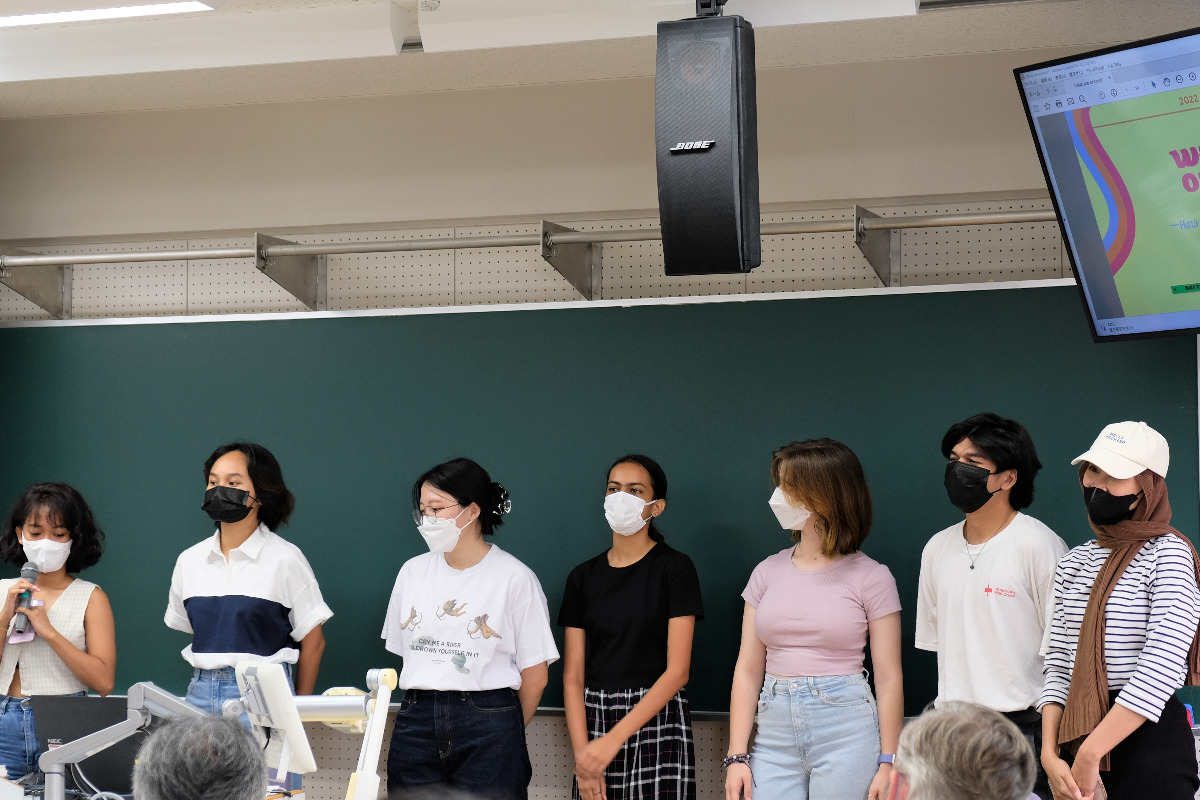
Nothing counts more than listening to seniors who were in the same shoes as the new students. Everyone looked more confident after the session.
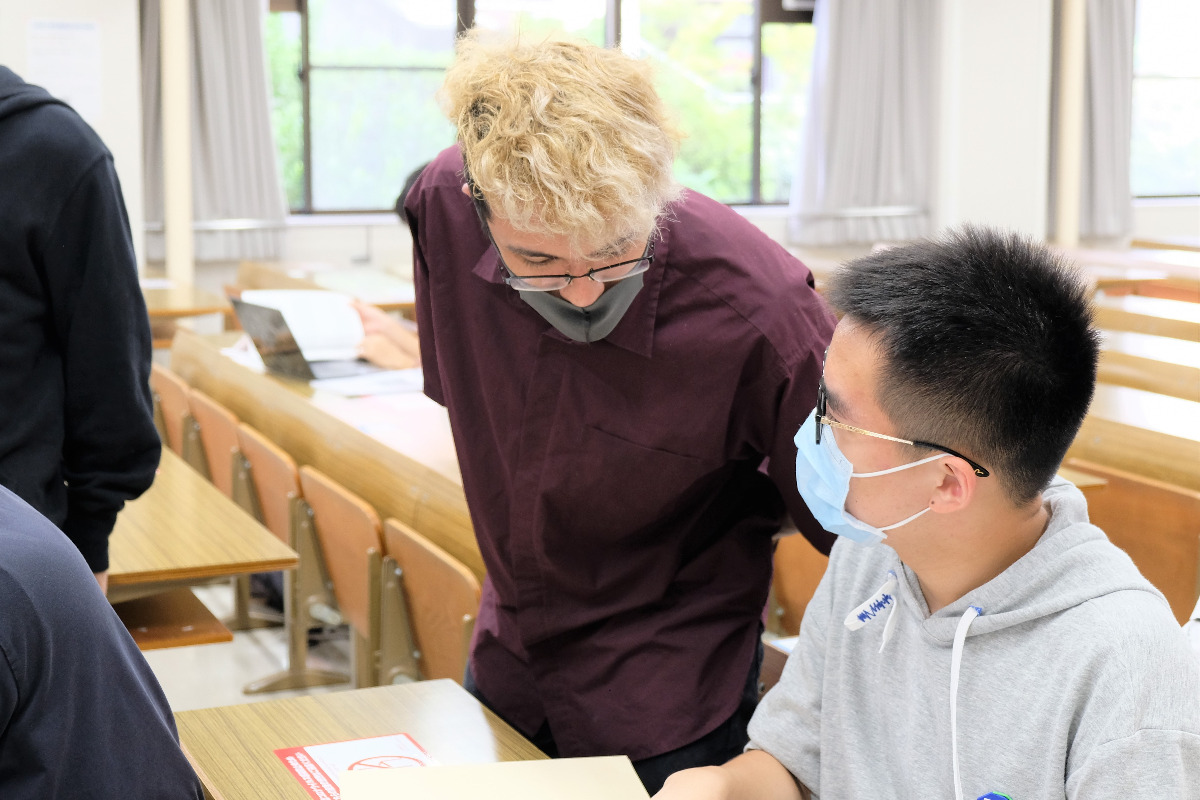
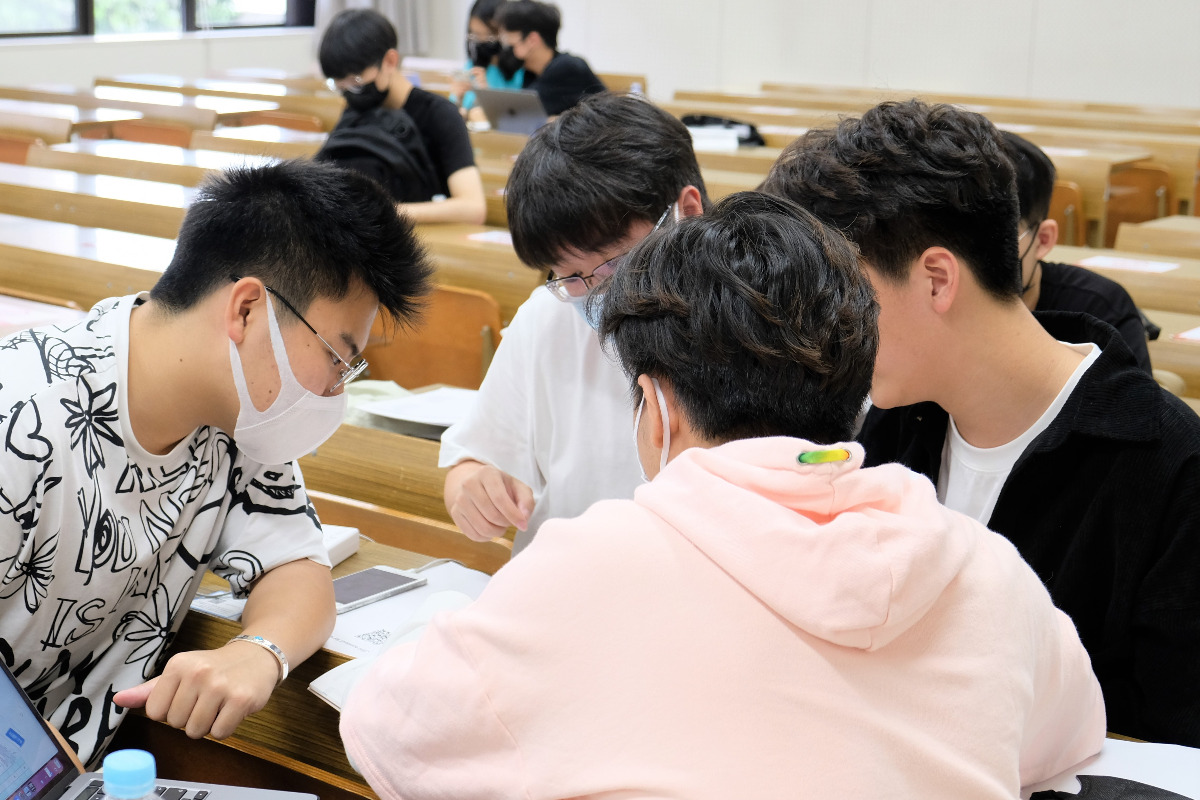
more
New Student Orientations
On September 15th, the New Student Orientation was held for Global Studies major students who were newly admitted.
We welcomed 47 new students for this fall semester.On September 20th, students participated in the Course Registration Q&A sessions. Senior students from the student group (orientation coordinators) participated in the session, consulting new students about course planning and course registration.
2022.09.29
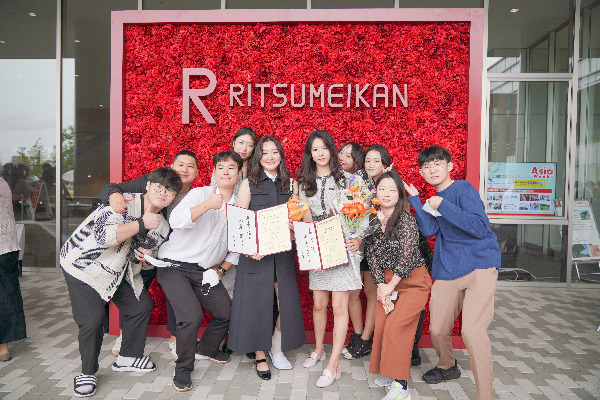
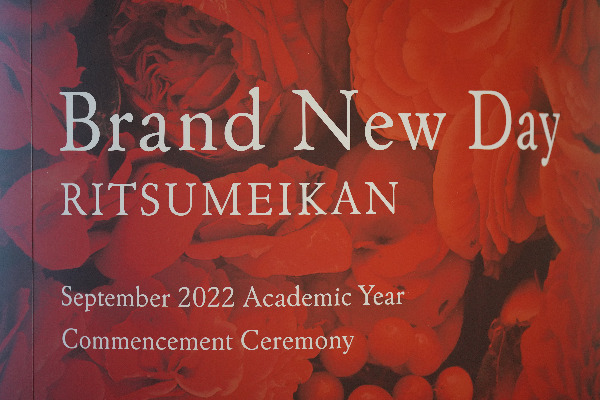
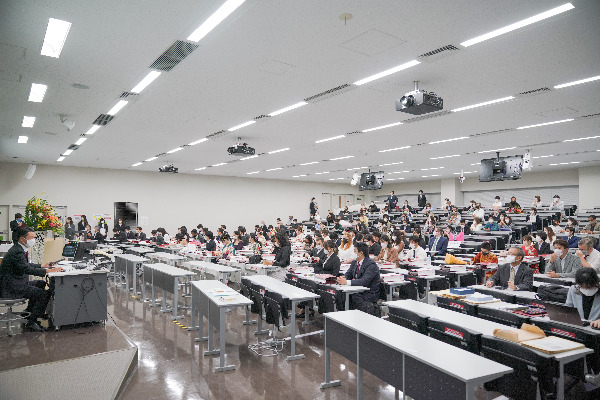
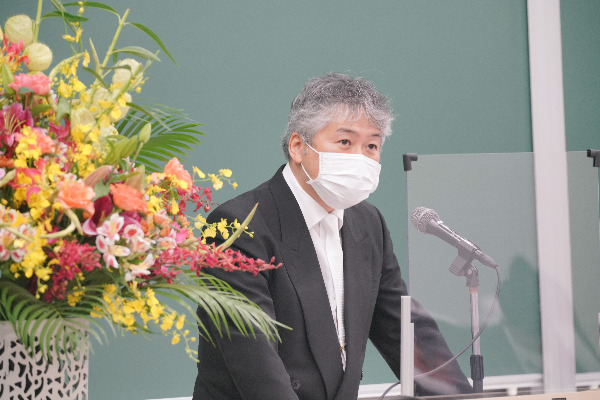
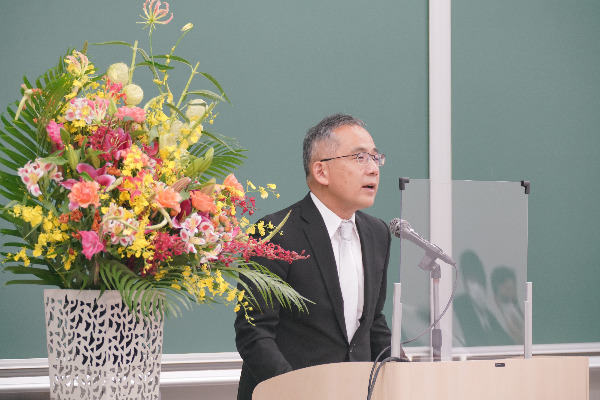
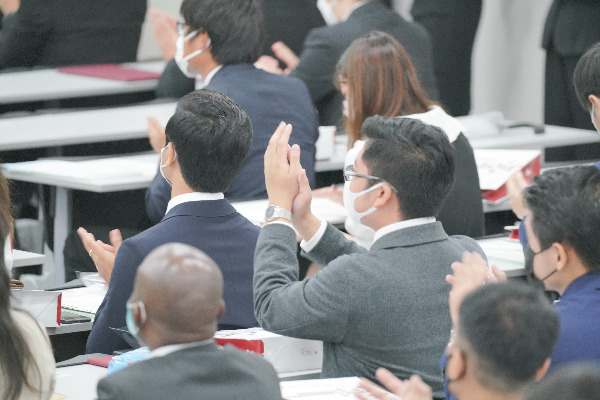
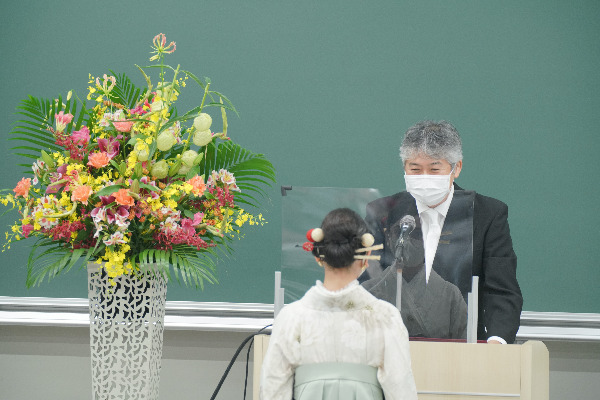
We have 56 graduates from the College of International Relations and 32 graduates from Graduate School of International Relations.
Family members and guardians of the graduates were able to join the graduation ceremony in-person for the first time in 3 years.
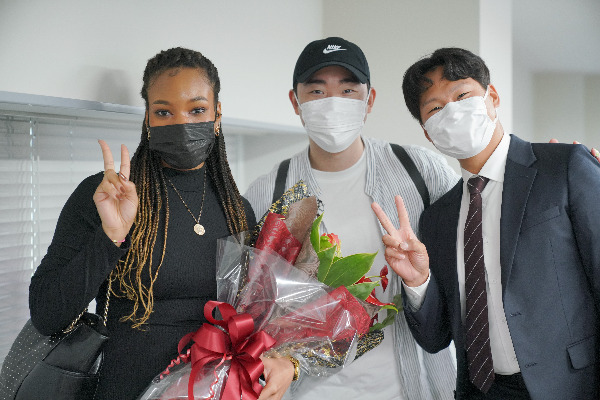
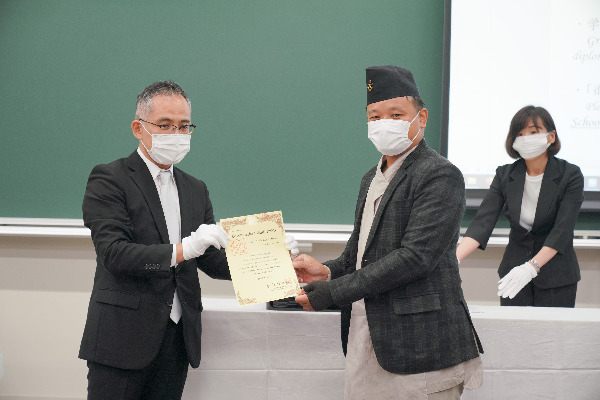
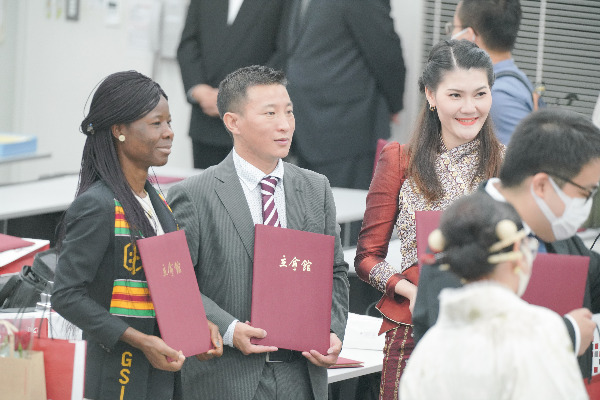
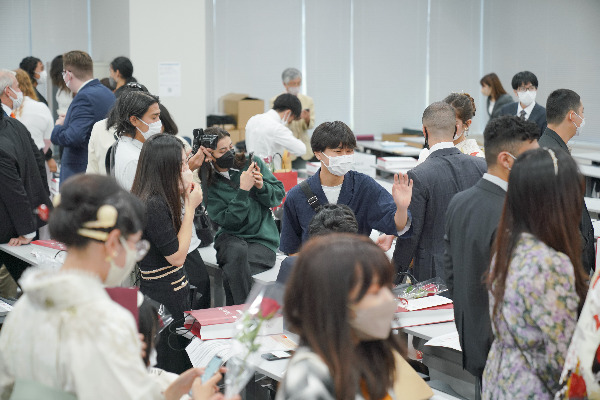
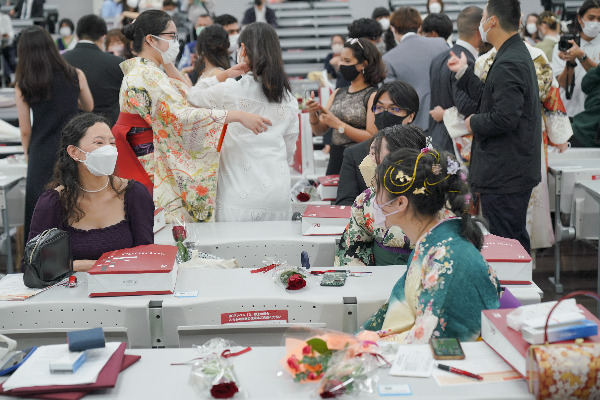
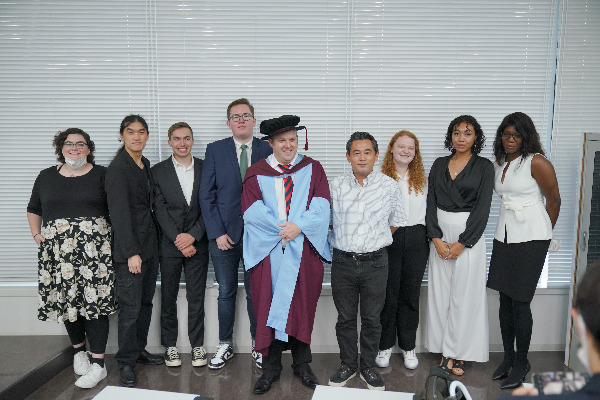
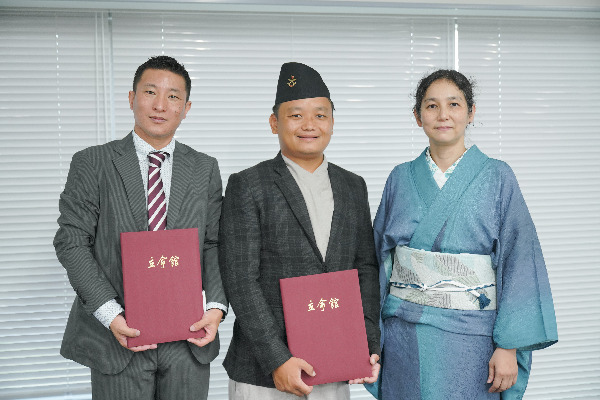
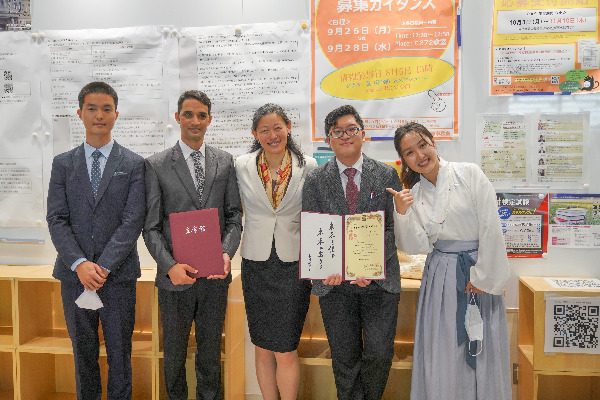

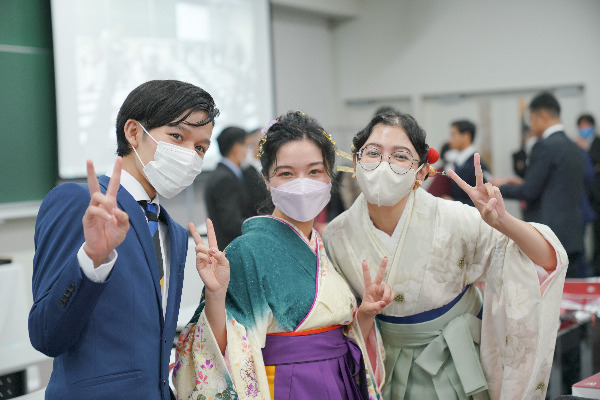
Congratulations on your graduations!
more
Graduation and Commencement Ceremonies held
The Commencement Ceremony of the Faculty of International Relations for the Spring Semester of the 2022 Academic Year were held at the Osaka Ibaraki Campus on September 23.
We have 56 graduates from the College of International Relations and 32 graduates from Graduate School of International Relations.
Family members and guardians of the graduates were able to join the graduation ceremony in-person for the first time in 3 years.
Congratulations on your graduations!
2022.09.16
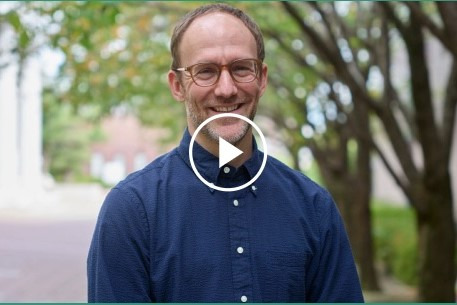
Mock Lecture:「International Nationalism,Digital Activism,and changes in Civil Society Post-2000」Associate Professor SMITH Nathaniel M.
2022.09.15

Mock Lecture:「Global International Relations and Moden Japanese History」Associate Professor FRENCH Thomas W.
2022.07.21

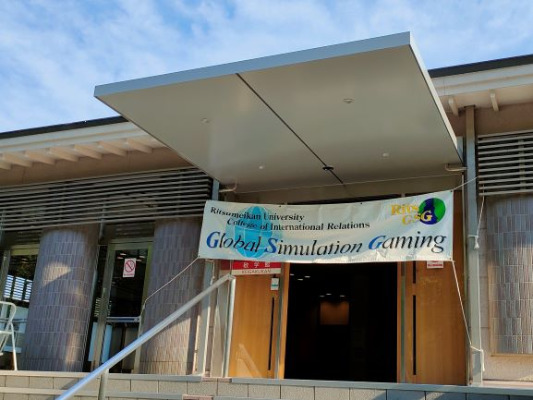
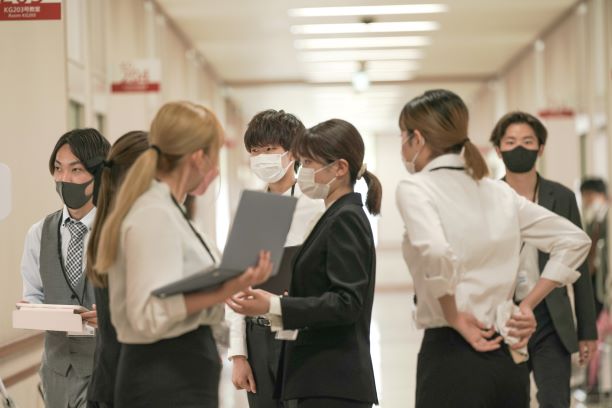
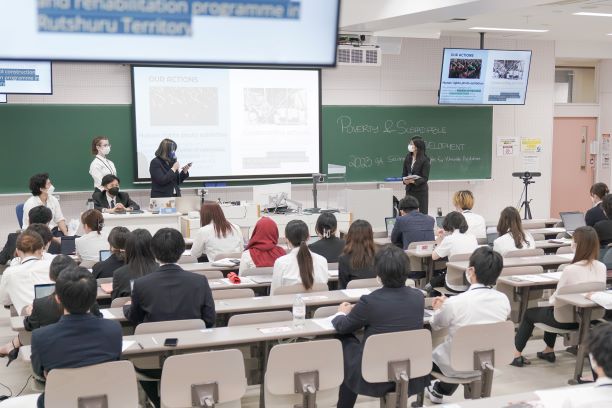
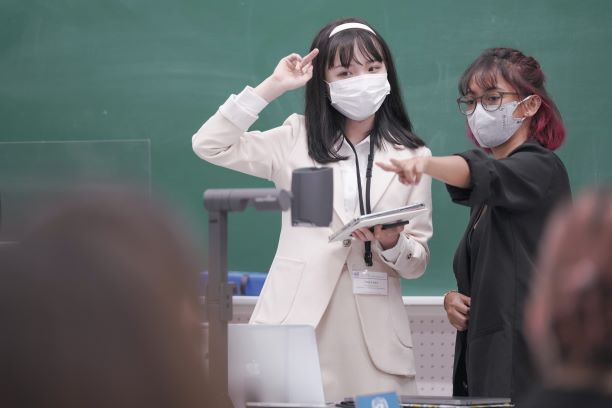
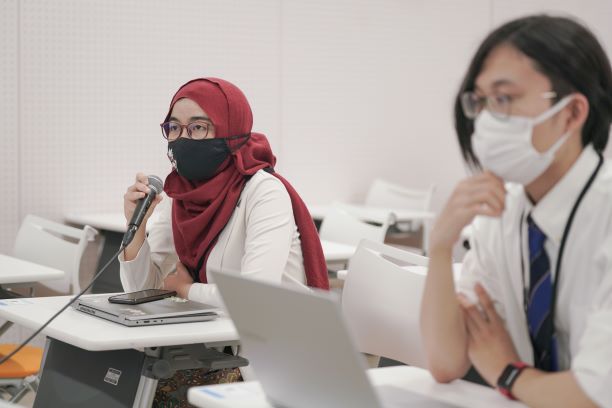
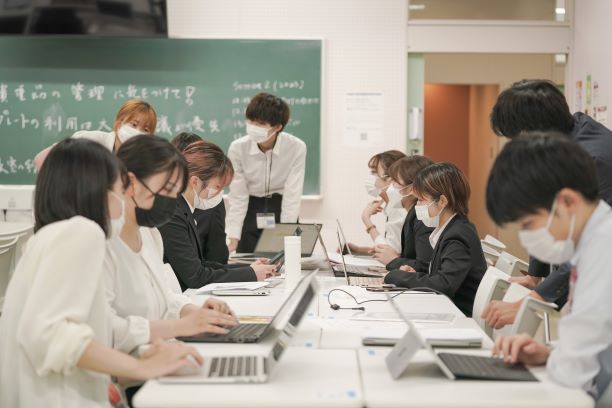
This year, the theme was [International Poverty and Sustainable Development].
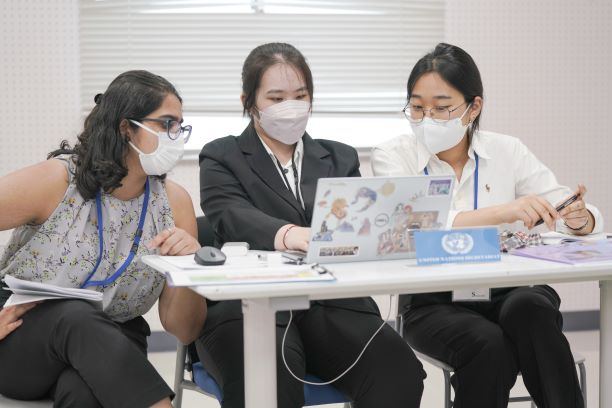
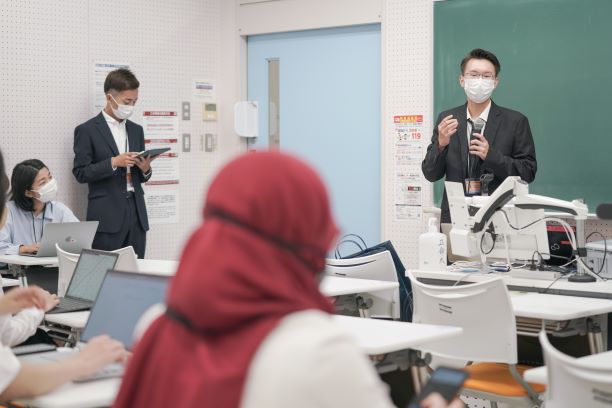
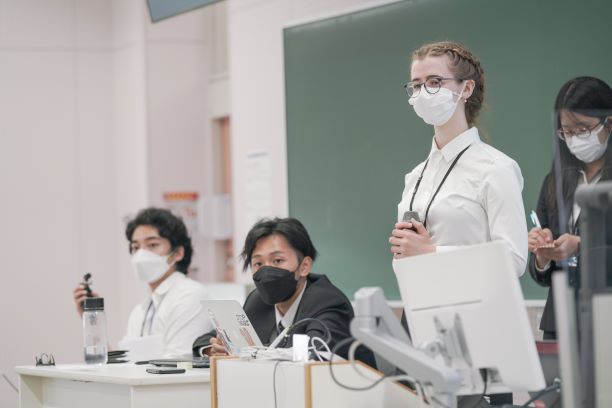
According to the student's surveys, there were comments such as,
‘I have learned a lot from this game. Not only about Japan, but how to propose a plan with other teams that will have an equal outcome, and how to sustain good international affairs. I realized how it's difficult to commit to big plans when you have limits but also have a responsibility as an active global citizen.’
‘We learned how to cooperate with other actors and how to create more concrete, precise plans to provide efficient help to vulnerable people. During creating treaties with others, we also learnt the proper attitude as a multilateral organization.’
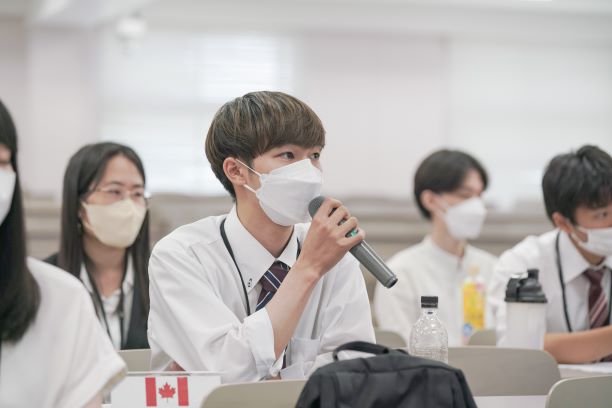
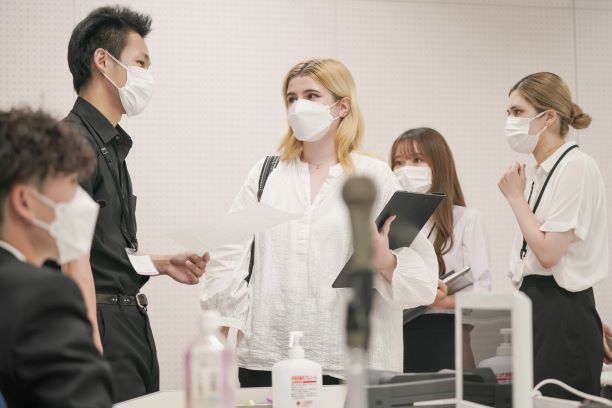
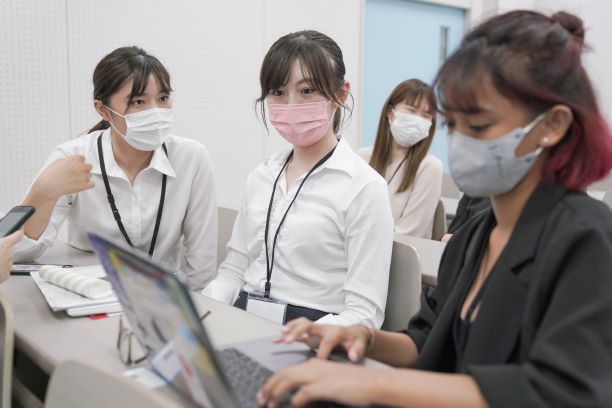

more
Global Simulation Gaming Event Day
On Saturday, July 2nd, the College of International Relations held
the "Global Simulation Gaming (GSG)" event on Kinugasa Campus using the
‘hybrid format’, combining in-person and online participation.
GSG
is a course in which 2nd-year students take on the role of
International Organizations, States, NGOs, Corporations, and media, and
experience international relations through policymaking, international
conferences, and negotiations.
By thoroughly researching their own actors and engaging in actual diplomatic negotiations, students develop knowledge of international affairs from multiple perspectives and deepen their understanding of the real international society.
During
the event, students assigned to different roles as ‘Actors’ organized
and participated in international conferences such as United Nation
Security Council and UN General Assembly and actively move international
negotiation forward to resolve issues. Media Actors have broadcasted
the situations through videos and online newspapers. Each Actor carried
out various activities based on the character of each country or
organization.
According to the student's surveys, there were comments such as,
‘I have learned a lot from this game. Not only about Japan, but how to propose a plan with other teams that will have an equal outcome, and how to sustain good international affairs. I realized how it's difficult to commit to big plans when you have limits but also have a responsibility as an active global citizen.’
‘We learned how to cooperate with other actors and how to create more concrete, precise plans to provide efficient help to vulnerable people. During creating treaties with others, we also learnt the proper attitude as a multilateral organization.’
The event left students with a great sense of
achievement while experiencing and understanding the difficulties of the
conflict of interests and forming agreements.